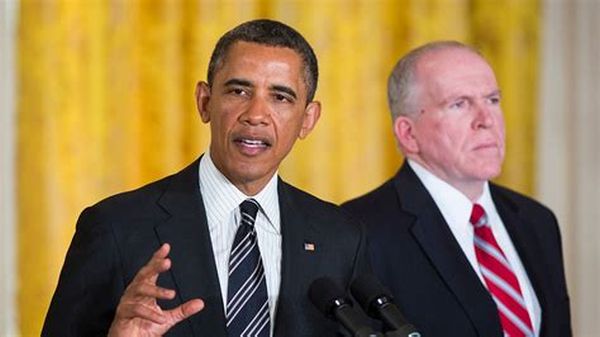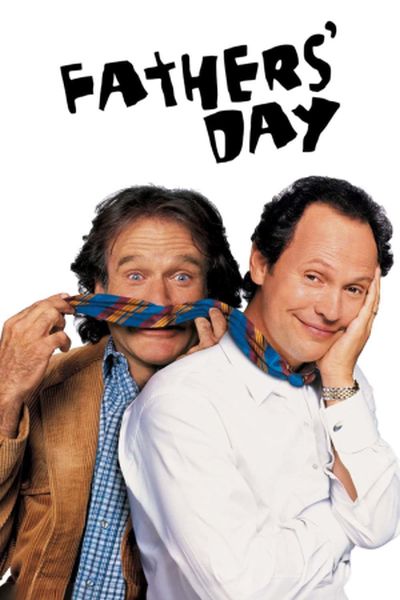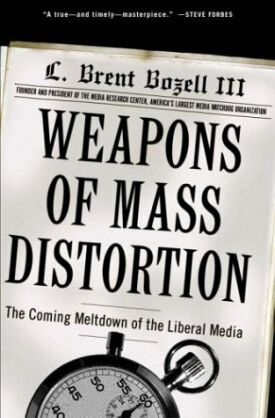The King of Tastelessness
From The New CriterionAs the old year breathed its last in the dark days around the December solstice, so also died “The Soup” which, if you count the decade or so of its previous incarnation as “Talk Soup” on the E! cable network, had for nearly a quarter of a century made fun of television talk shows and the sort of TV to which some wag had already attached the clearly ironic epithet, “reality.” Ultimately, what killed “The Soup” was the same malaise that sooner or later infects nearly all pop cultural attempts at satire in our times. It became indistinguishable from the things it was supposedly satirizing. By eschewing any moral perspective on the stupidity and the vulgarity of the popular media and treating it all as nothing but a good joke, “The Soup” had nowhere to go but to become stupid and vulgar itself in more or less equal measure.
I don’t know if you could find a better example today of that copybook maxim of yesteryear, taken from the apocryphal book of Ecclesiasticus, that “He that toucheth pitch shall be defiled therewith; and he that hath fellowship with a proud man shall be like unto him.” But these words must have a special application to television which, as we have learned in recent years, has a remarkably homogenizing effect on everything it turns its lens on — and, increasingly, on those who spend any time watching it too. Or, to put it another way, stupidity and vulgarity have become so ubiquitous on television that they are hardly recognizable as such anymore. Not to regular TV watchers, anyway. It’s just what they expect, which is why “The Soup” eventually became pointless.
Six years ago, Joel McHale, the long-time host of the show gave an interview to The New York Times in which he contrasted his part in “The Soup” with the role he was playing at the same time in an NBC sitcom called “Community”:
The difference between his two screen roles, Mr. McHale said, is that on “Community” his character must learn that he is not superior to his classmates and accept his place in their peculiar group. On “The Soup,” however, “almost every single human being is above some of the programming we show,” he said.
But that proved to be just the problem. If anybody could feel superior to the sort of people he was holding up to ridicule, there wasn’t much reason to feel superior. Or, in the end, to hold such people up to ridicule either. He ended the interview by noting that a wedding episode of the reality show “Keeping Up With the Kardashians” — also a show on the E! network — had recently had a bigger audience than the final episode of the latest season of the critically lauded “Mad Men.” “So, that happened,” Mr. McHale recalled his fellow “Soup” satirists as thinking. “I guess: Don’t go to school. Stay up late and drink. It doesn’t matter anymore.’” It was in a similar spirit of surrender to the TV culture, I thought, that he said his final good-byes to “The Soup” audience in December.
In that final episode, Mr McHale hinted that a show like “Keeping Up With the Kardashians” might have been invented just for the scorn with which it must have hoped to be treated, and once was treated, by “The Soup.” But as he had already suggested in 2010, that scorn couldn’t last. By the end, “The Soup” had long since given up on anything as old-fashioned as judgment or discrimination and was laughing mostly with rather than at its happy targets, whose own shows were only boosted by Joel’s good-natured attentions. Meanwhile his audience must have grown increasingly baffled by the number of references to people and events which could only have been understood by the most dedicated consumers of what was once known as trash TV.
Now, of course, it’s pretty much all trash. The scrapping of anything which might resemble a “judgemental” approach to people, no matter how suited to judgement they might once have appeared, suggests an interesting comparison between the end of “The Soup” and that of “American Idol,” which began its final season with the new year. On both shows, what people tuned in for when they were at their peak was that which the popular culture in general and TV in particular constantly pulls against, namely judgmentalism. There was just the hint of the thrillingly transgressive about both Simon Cowell’s famous put-downs of aspirational pop singers and Joel McHale’s ridicule of clueless news anchors or solipsistic reality stars. But both men must have constantly felt the cultural cross-currents, the whisper of the Zeitgeist in their ear: “So you think you’re better than they are?” It’s got to wear you down after a while.
And then there’s this. In the years since 1991 when “Talk Soup” first bravely essayed to administer its reality test to the media, “reality” itself has become politicized. Bruce/Caitlyn Jenner was only the last and most spectacular of the Kardashians’ dares flung in the face of their audience’s latent sense of moral superiority — which like that of Mr McHale, became ever more latent as a result and finally disappeared altogether. Now, the “transgendered” have been culturally and politically licensed to create their own reality out of the fantasy that they “really” belong to the opposite sex. And that factitious, surgically created reality cannot and must not be gainsaid under penalty of social ostracization and media persecution, as such one-time media darlings as Germaine Greer and Barry Humphries (as Dame Edna Everage) have lately discovered to their cost.
Yet it would be foolish to suppose that, for all the energies of the political culture, the media and academia which are being poured every day into the concerted effort to reshape reality into more progressively congenial forms, most people do not at some level, and however cowed they may be by the unanswerable authority of science and morality, retain a sense of and even a certain loyalty to the realities they grew up with: the realities of two sexes, for instance, and the ineradicable differences between them. Or, to rise above the sexual for just a moment — don’t worry, we’ll get back to it presently — the ancient and unchanging realities of fiscal prudence, national security and international power politics, the neglect of which in the Obama years Donald Trump has grown so popular by pointing out.
 |
It is no accident that Mr Trump comes to the task from the world of reality-TV — a world that has been built on the essential insight that, in the age of non-judgmentalism, every claim to moral authority, implicit or explicit, produces an equal and opposite counter-claim. Only someone with the wiliness of a Kardashian can make this work for him, and the signs so far indicate that Donald Trump has what it takes. The American political culture may never be the same as a result. Interestingly, Mr Trump’s earlier reality shows, “The Apprentice” and “Celebrity Apprentice,” built their success on the same kind of daring judgmentalism as “The Soup” and “American Idol” in their heyday. His catch-phrase, “You’re fired,” was designed to appeal to an audience so weary of the politically-correct pretense that nobody was better than anybody else that only such brutishness could appear as “reality.” He has simply brought the same formula into the political campaign with slashing attacks on so many sacred cows that people are more exhilarated than shocked by them.
Why, then, do his implicit claims to moral authority not wear out their popular welcome the way those of Messrs. McHale and Cowell did? Well, it’s early days yet, and they may well do so before very much longer. But I think there is another, more important reason — the same reason why the many comparisons between Mr Trump and Joseph McCarthy are misconceived. McCarthy, in the end, came across to the public as a bully; Donald Trump still comes across, at the time of writing anyway, as a man standing up to bullies — the media bullies who continue to belabor him with the bludgeon of political correctness. That’s why the more they do so, the more popular he becomes. On this subject at least, his claim is not to moral superiority but to moral equality. He’s the one denying — and denying on behalf of a great many other people who resent being called racist, sexist and other hard names — that the media and political elite who they see as having had things all their own way for so long in this country are any better than he is.
Just look at the first outrage to rattle the media’s cages in the new year.When Hillary Clinton attacked Mr Trump for “sexism” he replied with a flurry of tweets, all more or less to the effect that “If Hillary thinks she can unleash her husband, with his terrible record of women abuse, while playing the women’s card on me, she’s wrong!” At about the same time, someone dug up an old photo of Bill Cosby, who had just been indicted for sexual assault, campaigning with Mrs Clinton in the New York Senate race in 2000. It was the work of a moment for someone in the Trump camp to put together an Instagram video of that photo, together with ones of Mrs Clinton with Anthony Weiner and Bill Clinton with Monica Lewinsky, intercut with the appropriate tabloid headlines, all to the sound of scary music and Hillary herself intoning: “Women’s rights are human rights, and human rights are women’s rights; once and for all, let’s keep fighting for opportunity and dignity.” As the screen goes black, there then appears, first, the Trump name and motto, “Make America Great Again” and then, as that fades out, in all caps the words: “TRUE DEFENDER OF WOMEN’S RIGHTS.”
It’s enough, as Mark Twain says, to make a cat laugh. One can only imagine the envy that must have been felt among the other Republican candidates who have grown used to thinking of Bill Clinton’s sexual misbehavior as off-limits, especially in relation to Mrs Clinton’s candidacy, and of the man himself as the much beloved figure he is always presented as in the media. They must have been even more shocked than the Clintons. At a stroke the whole “War on Women” trope that did such yeoman service for Democrats in 2012 appeared to have been neutralized — and as a weapon in the hands of a female candidate! Even Donald Trump couldn’t have got away with this, however, except as a response to Mrs Clinton’s own entirely characteristic high-handed self-righteousness. That must also be why he let it be known, according to The New York Times, that “he had brought up Mr. Clinton’s past simply as a response to provocation. ‘I would be inclined to just let it go’ if the Clintons never again accused him of sexism, Mr Trump said.”
His shrewdness here lay in the essential insight that hypocrisy remains, along with sexism, racism etc., one of the few sins still recognizable as such by the media. Even The New York Times was forced to sit up and take notice. Its ever-so-superior Editoral Board produced one of its usually utterly predictable jeremiads about the matter that was nevertheless forced to pay a grudging tribute to the Trump genius. The editorial began and ended with a ringing denunciation of his “sexism” but in between it had this to say:
That said, it is indisputable that the Clintons’ political lives have been linked for decades, that Mr. Clinton is now playing a visible role in his wife’s campaign and that Hillary Clinton is accountable for her own public actions. For decades Mrs. Clinton has helped protect her husband’s political career, and hers, from the taint of his sexual misbehavior, in part by attacking the character of women linked to her husband.
The authors even felt constrained to bring up what must be Mrs Clinton’s most embarrassing moment on the campaign trail so far:
In September at the University of Northern Iowa, she pledged to combat sexual assault on college campuses, saying: “I want to send a message to all of the survivors. Don’t let anyone silence your voice. You have the right to be heard, the right to be believed, and we are with you as you go forward.” Last month in New Hampshire, a young woman challenged Mrs. Clinton on that. Speaking at a town hall event, the woman referred to several women who have said they were sexually harassed by her husband. “You recently came out to say that all rape victims should be believed,” she said, asking if Juanita Broaddrick, Kathleen Willey and Paula Jones should also be believed. Mrs. Clinton’s response was odd, and unhelpful. “I would say that everybody should be believed at first until they are disbelieved based on evidence,” she said.
Unhelpful, eh? Well that’s one word for it. That, by the way, was the first time that the name of Juanita Broaddrick — who alleged not sexual harassment but what poor old Todd Akin would have called “legitimate rape” against the former president when he was attorney general of Arkansas in 1978 — has appeared in The New York Times since 2006, when it slipped in in a quotation from Ann Coulter. I checked. And only Donald Trump could have put it there.
Nor was that the limit of his brilliance. The counter-thrust against the charge of sexism not only appeared as yet another of his gratifying assaults on political correctness and those who so seldom hear any answer to it when they employ it against those whom they regard — as Mrs Clinton revealed she does in a Democratic debate last year — their “enemies.” He also reminded people that Bill Clinton himself had once enjoyed the sort of immunity to scandal that Mr Trump now appears to have. And, I would say, for the same reason: because both were the targets of a pack of media — and, in that instance, Republican — moralists who, large segments of the public believed, lacked standing to set themselves up as being so much better than they were.
It is also worth remembering that Monica Lewinsky was seen by many at the time as payback for Anita Hill seven years earlier, in the year that “Talk Soup” began charting the cultural coarsening that, as “The Soup,” it ended up becoming a part of. Nor should we doubt the immense contribution that both of these media sensations — the Clarence Thomas hearings and the Clinton impeachment — themselves made to that coarsening. They were, in a way, the first and greatest of the reality TV shows that have since become so routine that they now even provide the template for political “debates.” Nowadays, all TV is reality TV — if only because it is all equally unreal. And in the kingdom of bad taste, the man who has mastered the finer points of the arts of tastelessness is king.
@
Discover more from James Bowman
Subscribe to get the latest posts to your email.







